Search Engine Marketing mainly offers Pay-Per-Click Advertising and this pricing model is efficient and effective in bringing your website to the digital screens of potential customers. Consequently, using the most popular Search Engine to promote and grow your business by means of adverts is a smart choice in itself when generating leads and sales in the digital marketplace.
Though the idea may seem as an outstanding move, it can also be one of the hardest and the most technical channels that one will have to handle as with any marketing campaign and these mistakes are very capable of compromising the effectiveness of your search engine marketing, making this strategic move even more expensive than it should have been.
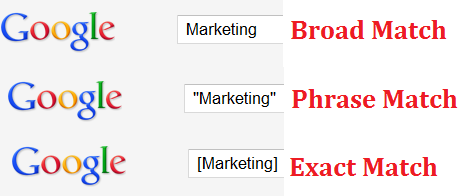
Following are some of the more common mistakes that you should definitely steer clear-of especially if you’re setting up a new business and decide to use Search Engine Marketing specifically through Google Ads to obtain access to an even larger audience.
1. Using Incorrect Types of Keyword Matches
When discussing keyword match types, there are several approaches to the topic that can be used to understand the concept of keyword match types.
Keyword match types are categories that essentially allow you to properly organize your bids tied to different search terms. This is a really important aspect to understand while using Search Engine Marketing because the connection between the keywords and your Bid is the real game changer. After all, the way you organize your bids on different search terms can help you promote what you are actually bidding.
The Table shown below is for your better understanding of the differences between different types of keyword matches.
| Keyword Match Type | Symbol | Example | Ads May be Shown On | Search Example |
| Broad Match | No Symbol | Men’s Shoes | Synonyms, Mispellings, Related Searches and variations like “shoes for men” | Male Dress Shoes |
| Modified Broad Match | +Keyword | +Men’s Shoes | Searches that include a “+” or close variations of it regardless of the order. | Shoes for Men |
| Phrase Match | “Keyword” | “Men’s Shoes” | Searches that include the phrase or close variations of it. | Buy Men’s Shoes |
| Exact Match | [Keyword] | [Men’s Shoes] | Searches that are exact or close variations. | Men’s Shoes |
To provide a more detailed example for our better understanding so that we can choose which one suits our needs, let us consider an entrepreneur named Katherine. Katherine runs a Coffee Shop selling her signature coffee named “Katherine’s Coco Loco“
Katherine can bid for her product in any of the following methods :
Broad Match
You will find that Google provides you with Broad Match Keyword Match Type as a set default giving you the broadest platform of search terms to compete on. While in many scenarios for novices, this may seem as beneficial to your marketing campaign as your ad can be viewed in a larger audience pool. But it is by no means always the best option for a beneficial return on your investment.
If Katherine choose the keyword “Katherine’s Coco Loco Coffee”, she will most likely bid on broad search terms such as;
- Coco Loco
- Katherine Coffee
- Coco Coffee
- Katherine Coco
By broadening the types of search queries, it can become a viable way to uncover other keywords that are worth bidding on by analyzing which one’s actually provide value.
Modified Broad Match
Modified broad match allows you to bid on a broad set of search terms with the catch that they contain your most important keywords by adding a (+) sign to the end of the specific terms you bid on. This allows them to appear in any order when searched so if you are targeting your ads for a broader audience but still need to keep the area of the search terms narrowed, Modified Broad Match has the capability to do so.
For example, Katherine wants to target an audience searching for Coffee Beans and Coco Powder. Katherine can utilize this match type for her own benefit by using +Coco +Coffee.
This makes the Modified Broad Match a perfect match type for majority of the businesses.
Phrase Match
As the name suggests, Phrase Match offers to narrow down your search terms. Phrase Keyword Match Type emphasizes on the most important keywords or phrases in the search terms that you are willing to bid on my surrounding them in quotation marks. (“).
For this purpose, Katherine will need to use her own wits and understanding of the market and infer that most of the people that would buy her Coffee will definitely search for the phrase “Coco Loco Coffee”
So keeping the following phrase in mind, Katherine will potentially bid on search terms such as;
- Good “Coco Loco Coffee”
- Affordable and Tasty “Coco Loco Coffee”
- How is “Coco Loco Coffee” different from other Coffee
This will Help Katherine appeal to a narrowed but still a general audience for her product.
Exact Match
This Keyword Match Type would work best when Katherine knows the search term that she wants to confidently bid and compete on.
In a situation compliant to the above assumption, Katherine would know the search term that most people type into the Google Search Engine to obtain directions to her shop. Let’s say that search term is “Katherine’s Coffee”.
So knowing the exact keyword you want to bid on, you will be adhering to a specific audience and competing on a narrow platform. This type is very useful if you have a unique product or you have statistical data of the keyword that is often used relating to your product.
2. No Utilization of Third-Party Data
Google is the leading Search Engine Marketing platform currently in the game for a reason. As such, Google Ads come with a plethora of useful and beneficial features.
But Marketers seem to forget or even completely avoid using Google’s Third-Party Data feature. This feature utilizes various APIs and scripts to interact with third-party data to automatically adapt your bidding.
A common example of the usage of Third-Party Data is the weather. You would never want to bid on rain, damp or umbrella related keywords if the forecast said that the weather would be sunny for the next couple of days. That would be a total wastage of money because it would fail to bring in the traffic you required for your bid.
While on the other side of the coin, if you came to know that the weather was going to be rainy for the next couple of days, naturally you would want to increase the bid for the related keywords so that you end up increasing the lead conversion and sales.
What the APIs and scripts do is that they automate the gathering of such data and optimize your bidding my suggesting to either increase or decrease the bid for the related keywords. This can immensely boost the search efficiency.
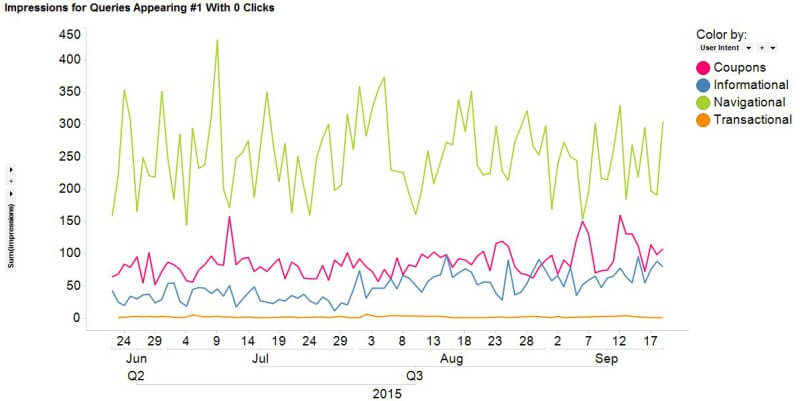
However, this is but a simple example of what the APIs and Scripts are capable of. One relatively complex example I will also state is the capability of the APIs to find insights from the Search Analytics.
This example shows how basic scripting was done to bucket queries into four primary categories, while filtering only to show queries appearing in position one that received no clicks.
So this shows that many Marketers underestimate the capabilities of the APIs and are missing out on an efficient method to optimize their marketing campaign.
3. Staying Away From Geotargeting
A successful Digital Marketing Campaign is heavily dependant on the locality relating to the product. In this case, Geotargeting is a term which basically means to create seperate advertising campaigns for each individual city in the targeted area involving specific ads containing the names of those cities in the AD description.
In simple words, You make specific ads for each locality when choosing a region for your marketing campaign.
Many Marketers take this for granted and stay away from geotargeting because of the “hassle” but if executed properly, a geotargeting campaign has the ability to drastically cut down the cost of an individual lead while increasing the overall lead generation. This is incredibly useful for service based businesses whose advertising efforts are based on a specific list of locations in which they operate in.
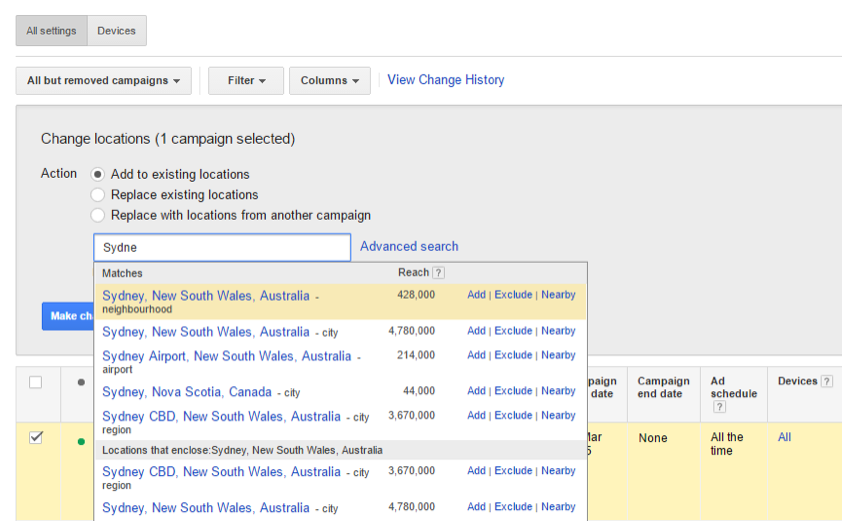
4. Using the Same AD Group for Multiple Keywords
This can easily be the most common and the most devastating mistake any novice Digital Marketer can make when utilizing a Search Marketing Engine such as Google Ads to promote or grow their business.
When choosing an AD group, the major mistake often made is assigning multiple keywords to that single AD group.
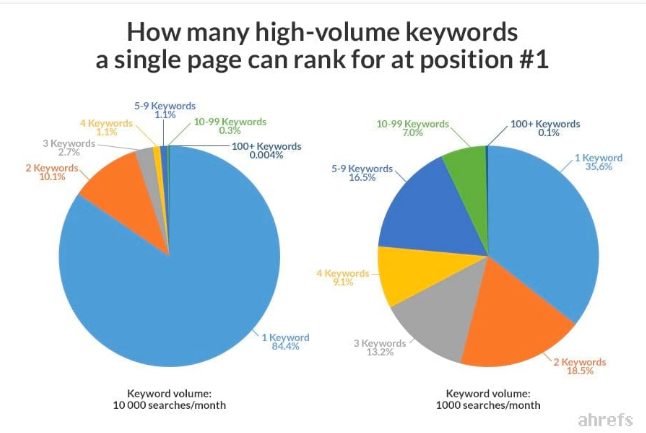
This mistake leads to a mismatch between what people are actually searching for and what the AD suggests diminishing the effectiveness of the Marketing Campaign.
So instead of obtaining increased leads from the multiple keywords in the AD group, the ads that the Marketer has bid on does not target the relevant audience and it just shrugged off as an annoyance.
On the other hand, the success of a single and smartly chosen keyword for the ad group is
As depicted, the success of single to a small cluster keyword for a single Ad group is paramount to the success of multiple keywords being used for the same Ad group.
Hence, the best course of action is to add one keyword per group which allows you to make ads more specific and in turn more relevant.
5. Using Fewer Advertising Extension Sets
Extension sets allow your ads to occupy even more in the search engine results page. But the mistake that most marketers fall prey to is that they use a limited few extensions sets, for example, only using 3 or 4 extension sets instead of utilizing the full 9 extension set in attempts to cut expenses.
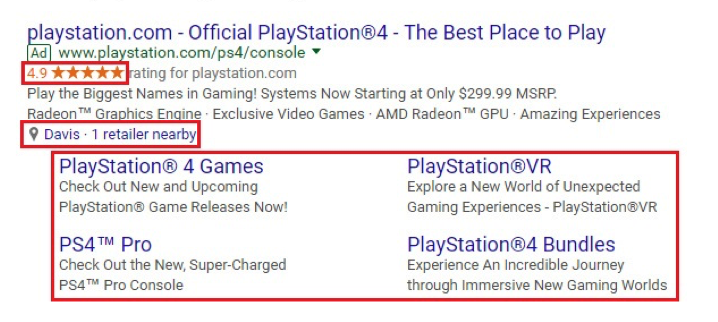
While using a complete set of advertising extensions is seen to produce results in vastly improving the performance of Google Ads for your specific bids. For the sake of clarification, the complete set of advertising extensions can easily include
- Call
- Callout
- Location
- Message
- Price
- Review
- Seller’s Ratings
- Website’s Link
- Structured Snippet
So be sure to consider using a full set of advertising extensions to take advantage of more real estate on the search engine.
6. Failing to Prepare for Remarketing Campaigns
What the term “remarketing” means is that an advertising practice which is generally used to reach people that have already visited your website through your marketing campaign but still haven’t been converted into a customer.
The mistake that a lot of marketers make is that they fail to put in the effort to properly optimize and actually relocate the ads in their marketing campaign to make it even more efficient. A lot of marketers insist on using a remarketing campaign but the majority chooses to ignore this choice of action making their marketing campaign less effective.
The effective locations of adverts for a remarketing campaign can be identified by means of a report detailing all the necessary information generated by Google.
Conclusion:
These are just some of the many common mistakes that people make when using Google Ads for Search Engine Marketing but these mentioned mistakes hold a significantly larger impacts than others on digital marketing campaigns. So be sure to be wary of these mistakes or you will end up risking valuable leads and potential customers and spending a lot of valuable resources on a campaign that was destined to fail from the get-go.
Other minor mistakes include misspelling the keyword that you bid for, broken and redirected landing pages and even failing to monitoring the competition.
I hope that the information proceeds to facilitate you in your marketing campaign to organize properly optimized plan for campaign and this press release article has done its job to help you steer clear of these common mistakes so that you succeed.
References:
1). Kumar, B. (2016, November 2). 6 Common Google Ads Mistakes You Should Stop Paying For. Retrieved February 27, 2019, from https://www.shopify.com/blog/google-ads-mistakes
2). Rueggger, A. (2015, October 26). How To Leverage The Google Search Analytics API. Retrieved February 27, 2019, from https://searchengineland.com/leverage-google-search-analytics-api-234313
3). Smart Insights (Marketing Intelligence) Ltd. (2018, August 28). 8 simple Google Ads mistakes you can easily avoid. Retrieved February 27, 2019, from https://www.smartinsights.com/paid-search-marketing-ppc/8-simple-adwords-mistakes-can-easily-avoid/
By Azeem Mehmood

Have questions about press release distribution, or any of our other services? Our team at PR Distribution™ is ready and happy to help through email, live chat, support tickets and phone! Contact us


